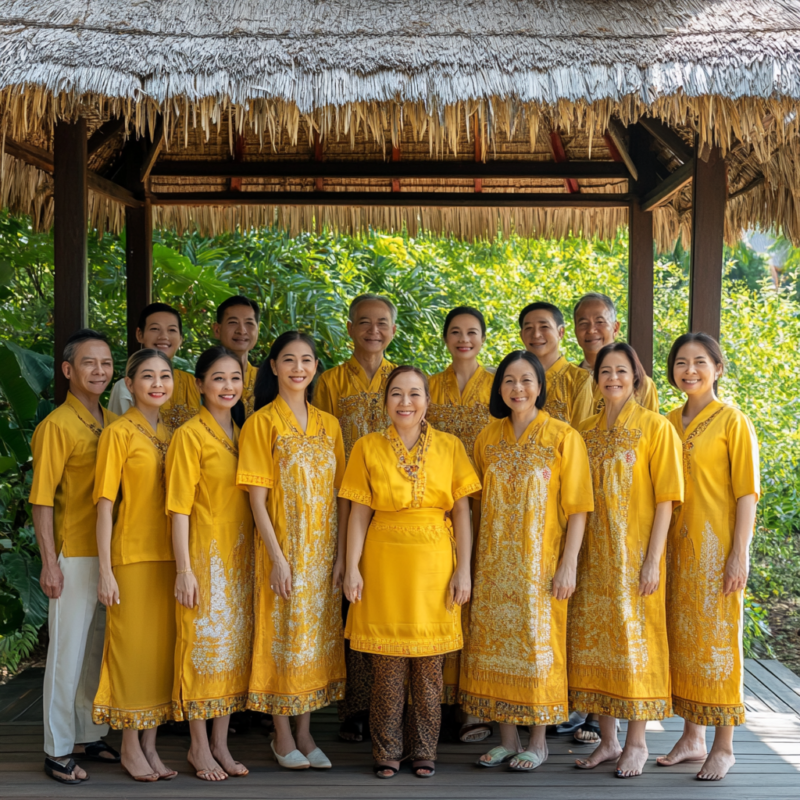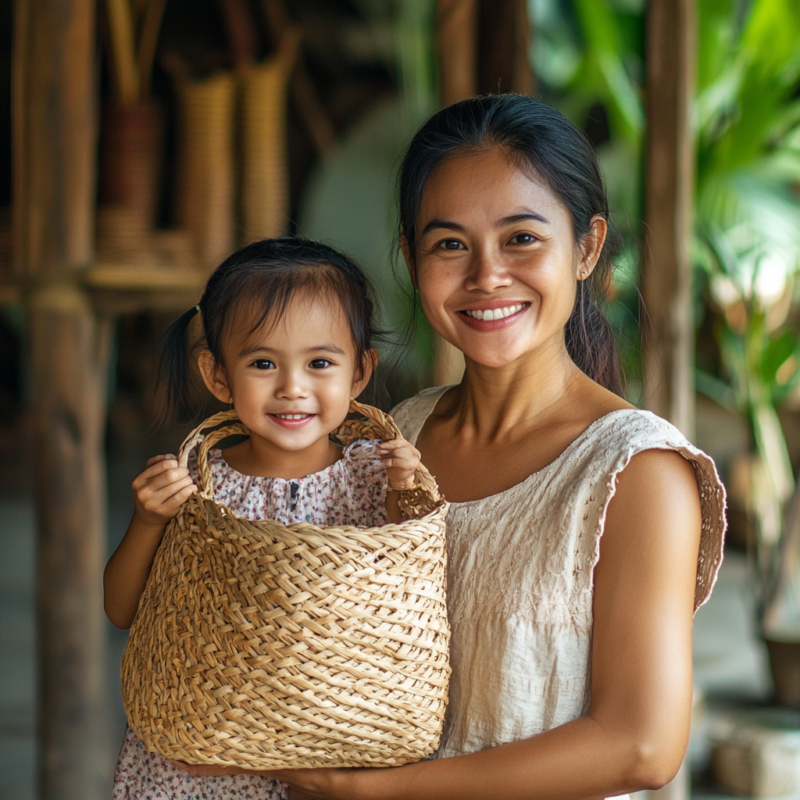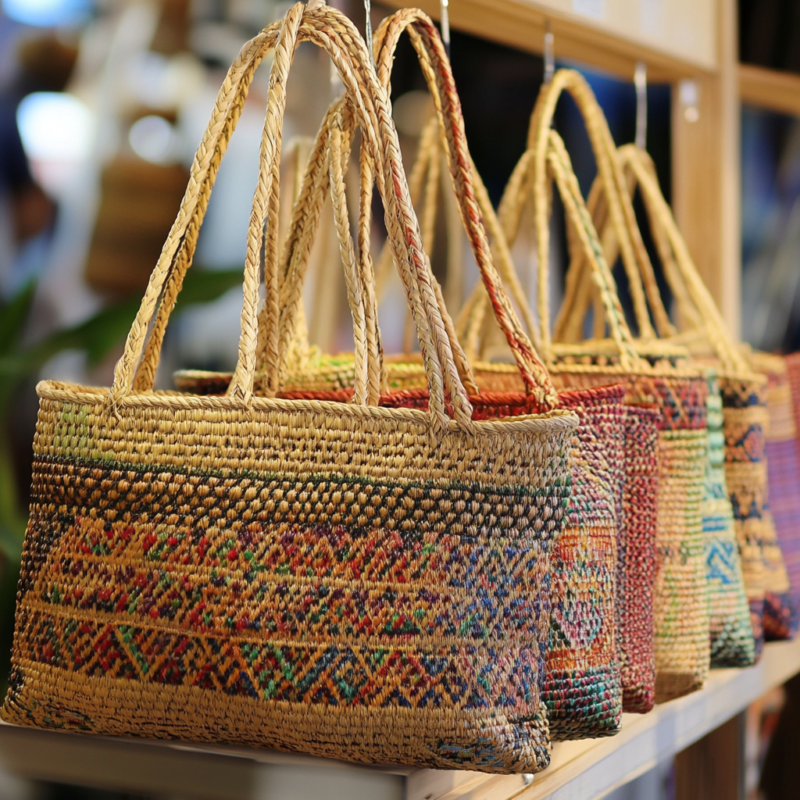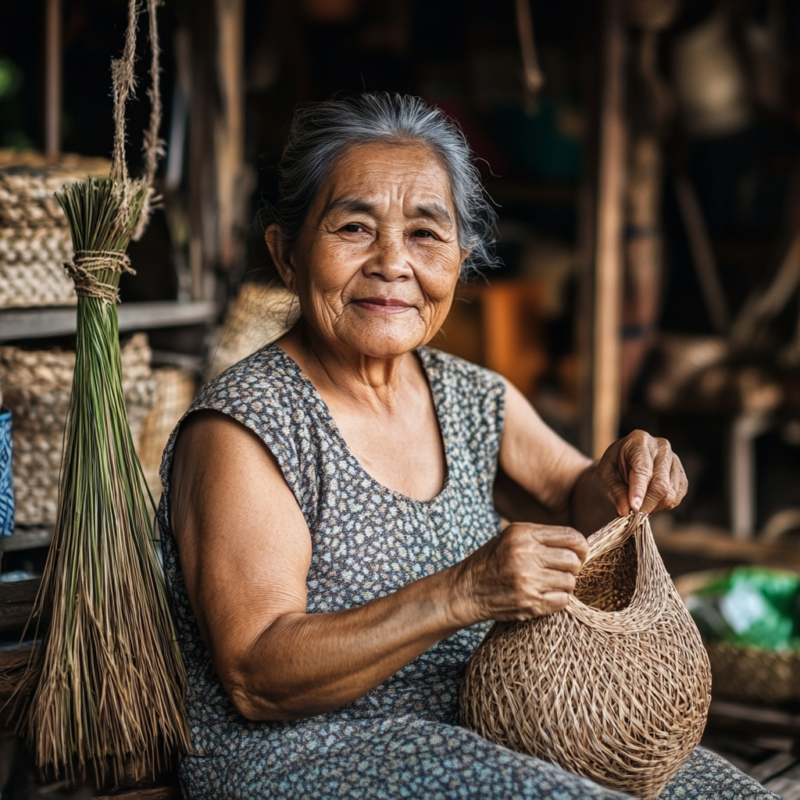Step 2: Drying and Preparing Fibres
Once harvested, the water hyacinth is left to sun-dry naturally, a crucial step that enhances the strength and longevity of the material. The drying process can take several days, depending on humidity and weather conditions. Once fully dried, the plant is stripped into fine, flexible fibres, ready for the intricate hand-weavinghand-weavinghand-weavinghand-weavinghand-weavinghand-weaving process.
Step 3: Weaving and Traditional Techniques
Master artisans use time-honoured weaving techniques to transform the dried fibres into beautiful, durable straw bags. Artisans create unique, high-quality designs Using various weaving styles, such as basketweave, herringbone, and coil weaving. Each bag is woven by hand, requiring patience, skill, and precision, ensuring that no two pieces are identical.
Step 4: Finishing Touches and Quality Enhancement
After weaving, each straw bag undergoes final refinements to enhance its appearance and durability. Artisans apply natural dyes to enrich the bag's colour. At the same time, hand-stitched handles, reinforced seams, and eco-friendly coatings ensure long-lasting strength and resistance to wear. The final product is a lightweight, breathable, durable accessory embodying sustainability and ethical craftsmanship.
A Commitment to Zero-Waste Production
Throughout this process, zero-waste principles are strictly followed. Every part of the water hyacinth plant is repurposed or reused, minimising waste and ensuring that production remains environmentally responsible. By adhering to these principles, The Straw Bag Company champions sustainable fashion. It promotes ethical, eco-friendly alternatives to mass-produced accessories.
Each handwoven straw bag is a fashion statement and a symbol of sustainability, craftsmanship, and cultural heritage, making it an essential part of the global shift toward responsible consumerism.
The process follows zero-waste principles, ensuring that every part of the water hyacinth plant is used in sustainable production. This method highlights the commitment to ethical craftsmanship and eco-conscious fashion, making each handwoven bag a statement of quality, sustainability, and cultural heritage.





















